Industry Advocacy
The evolution of the benefits industry in Canada is happening at a faster pace than ever before. Our advocacy mission is to be the leader in directing those changes to benefit Canadian employers, employees, and our advisors.
What We’re Focused On
What We’re Working On
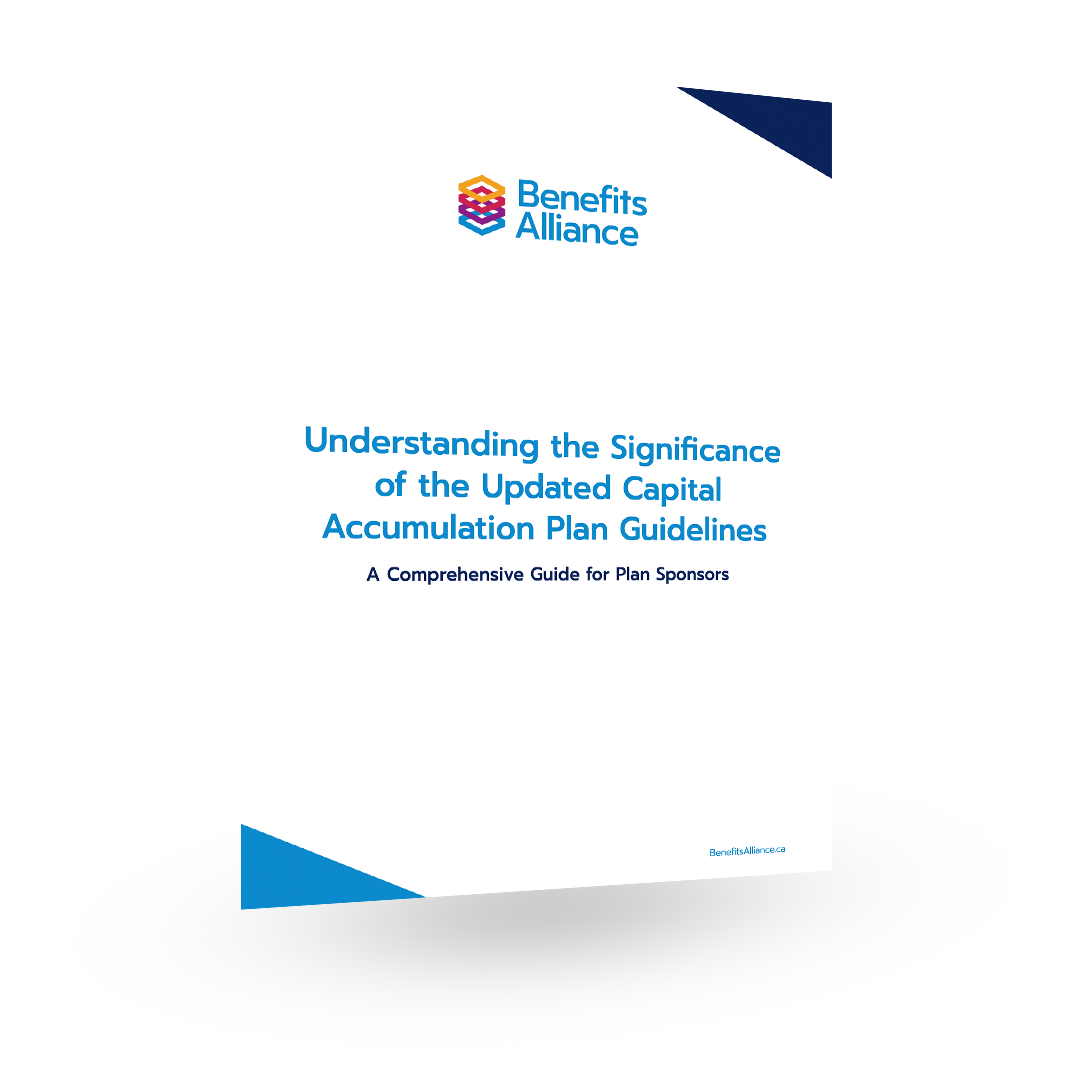
Understanding the Significance of the Updated Capital Accumulation Plan Guidelines- A Comprehensive Guide for Plan Sponsors
October, 2024
The Capital Accumulation Plan (CAP) Guidelines, a crucial tool for sponsors, administrators, advisors/consultants and service providers in managing CAPs, have undergone a significant update in September 2024. Get the summary by downloading this guide from Benefits Alliance.
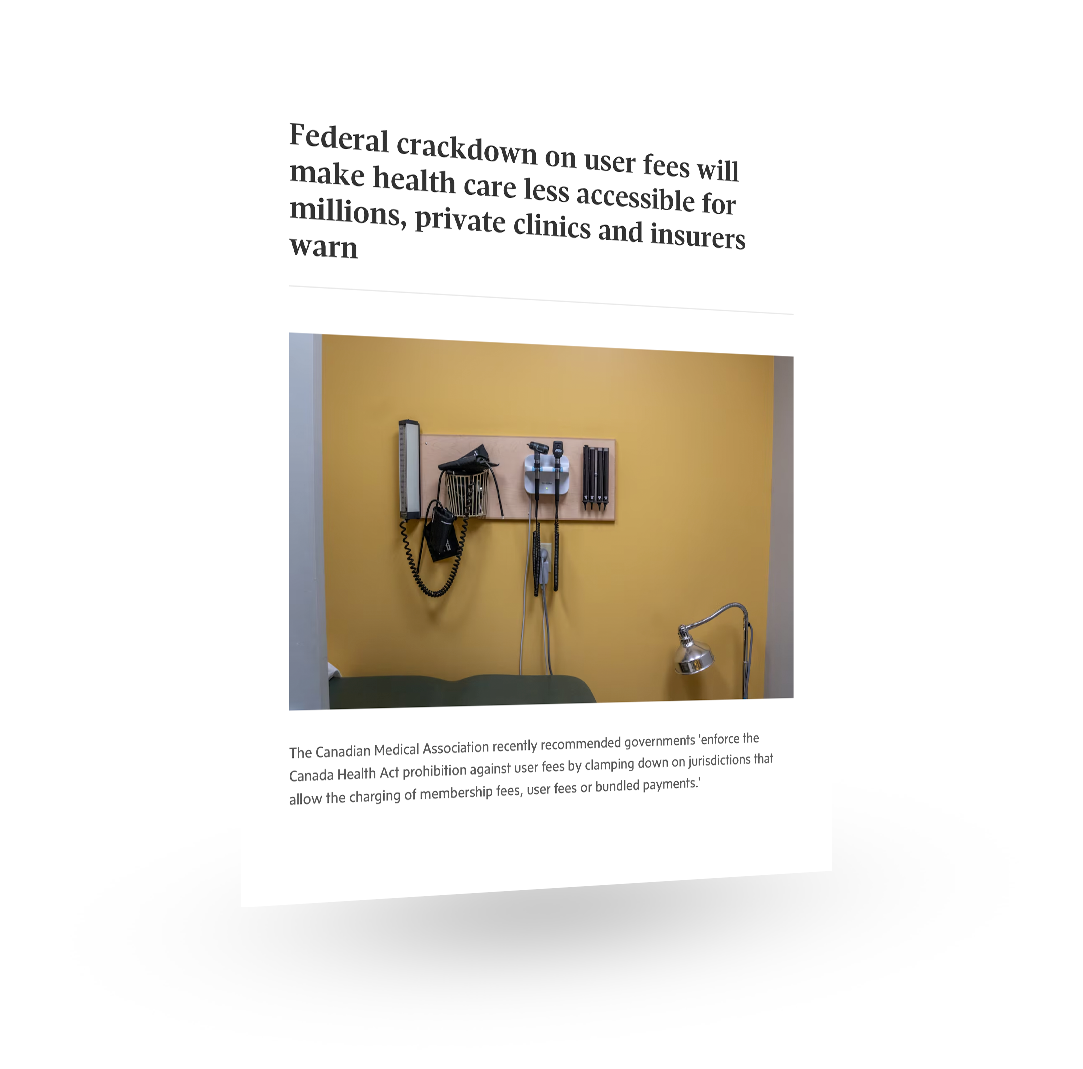
Federal Crackdown on User Fees Will Make Health Care Less Accessible for Millions
August, 2024
Private insurers and virtual health companies are sounding the alarm over a federal promise to penalize provinces that allow private entities to charge patients for medically necessary primary care, saying the move could threaten access to a popular workplace benefit.
Federal Health Minister Mark Holland said last month that he would issue in “short order” a letter clarifying how the Canada Health Act applies to medically necessary care delivered virtually and by health professionals other than doctors, most often nurse practitioners.

Virtual Care Letter
May, 2024
Canadian businesses and organizations have chosen to sponsor benefits plans that offer competitive health/dental programs for their employees to help support overall health and wellness in their workforce and their families. We believe that virtual care is an integral part of this offering. According to the Canadian Life and Health Insurance Association (CHLIA) approximately 10 million Canadians currently have access to employer funded virtual care. We can conclude that this is highly prevalent in our clients across the country.
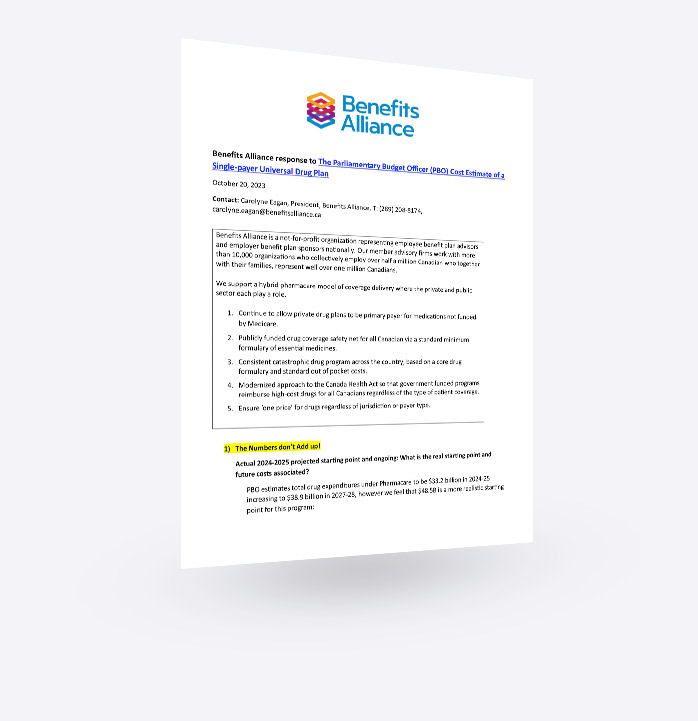
Benefits Alliance response to PBO
October, 2023
- Continue to allow private drug plans to be primary payer for medications not funded by Medicare.
- Publicly funded drug coverage safety net for all Canadians via a standard minimum formulary of essential medicines.
- Consistent catastrophic drug program across the country, based on a core drug formulary and standard out-of-pocket costs.
- Modernized approach to the Canada Health Act so that government-funded programs reimburse high-cost drugs for all Canadians regardless of the type of patient coverage.
- Ensure ‘one price’ for drugs regardless of jurisdiction or payer type.
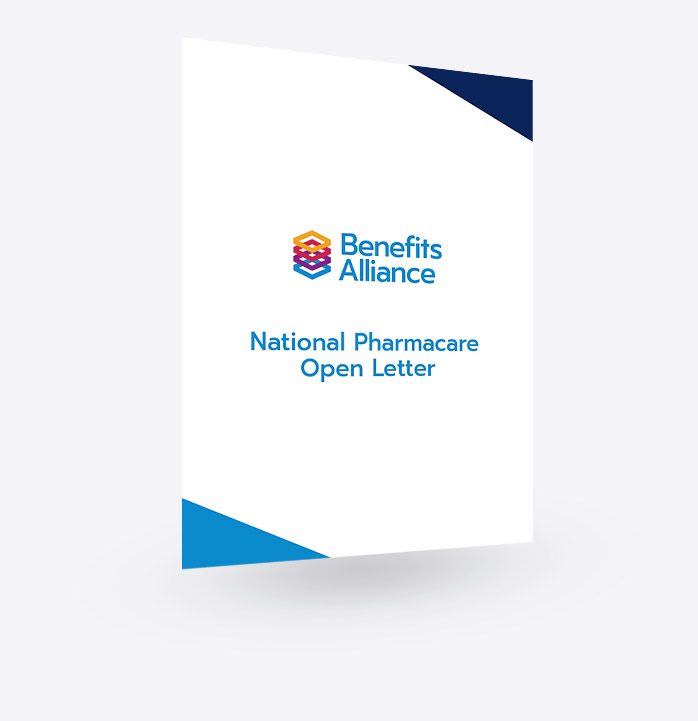
National Pharmacare Open Letter
August, 2023
The member advisory firms we work with have helped employer benefit plan sponsors to set up, fund and manage a comprehensive benefits plan for their employees, at considerable cost. Nearly 4 out of 5 adult Canadians have access to pharmaceutical coverage through public or private plans, a large portion of which is insured coverage through employee benefits plans. Our member advisory firms, and the employer benefit plan sponsors they work with, are key stakeholders in this important discussion to help provide for sustainable, universal access to affordable drug coverage for all Canadians.
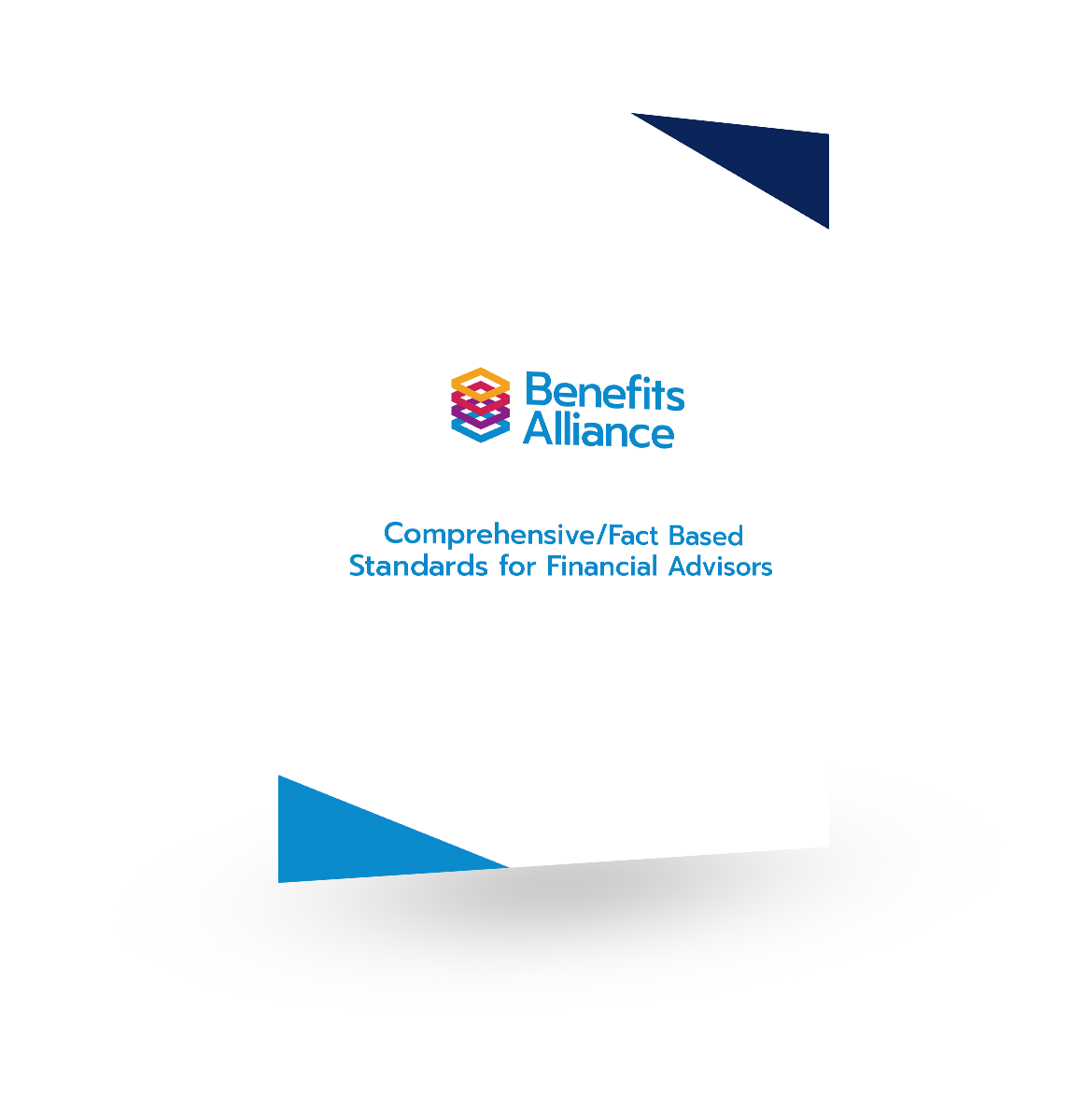
Comprehensive/Fact Based Standards for Financial Advisors
January, 2023
The FCAA has the opportunity to address an unintended but inherent weakness which stems from a failure to properly establish the BCP for FAs. If left unaddressed this weakness will artificially establish a gulf between the professional standards between FAs and FPs, and place consumers at increased risk.

Comprehensive/Fact Based Standards for Financial Advisors – Summary
January, 2023
Benefits Alliance fully supports the FCAA and the government of Saskatchewan in their title protection Act. The solution that brings the Act to the top of the class with a standard that others will harmonize to can be achieved through a modification of the BCP for FAs based on a comprehensive model.
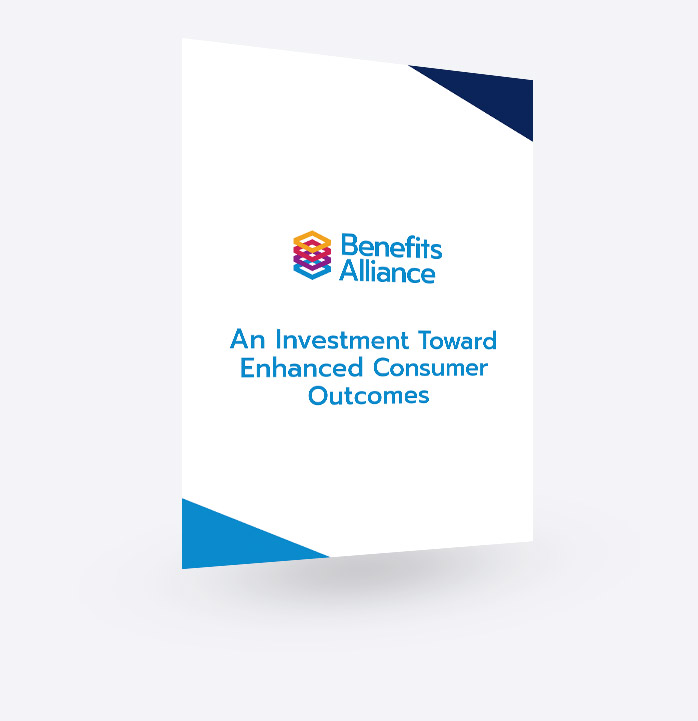
An Investment Toward Enhanced Consumer Outcomes
December, 2022
Prior to the Financial Professionals Title Protection Act (the Act) anyone could call themselves a Financial Advisor or Financial Planner. The absence of any legal or regulatory control over title use exposed consumers to risk as there were no educational or licensing requirements establishing standards for those holding out, nor safeguards for the use of these titles. The Act ensures that only those who have achieved the appropriate level of education and training, and who are members in good standing of an approved credentialing body will now be able to use the titles, Financial Advisor and Financial Planner. This is a positive outcome for consumers and the industry.
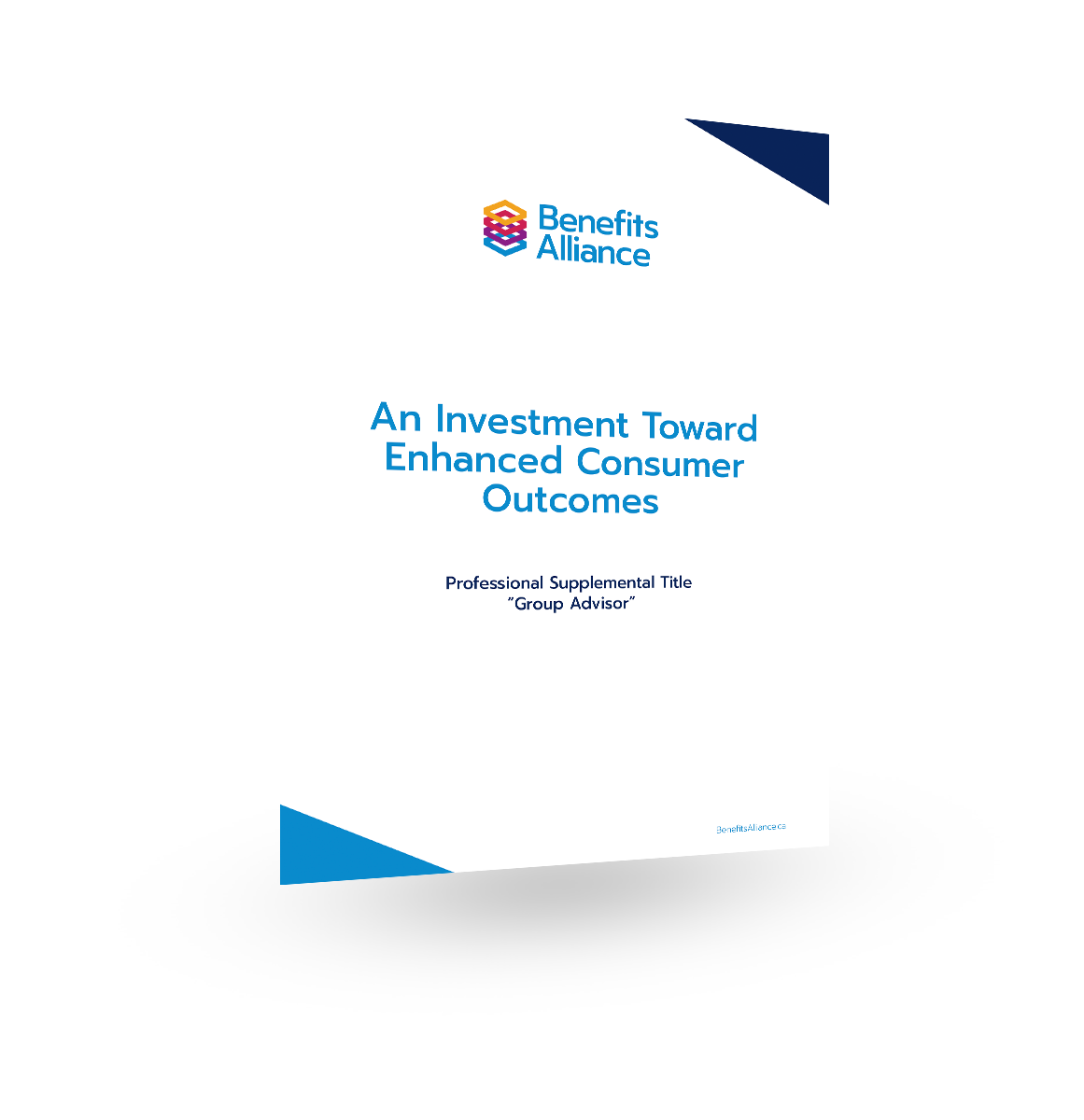
An Investment Toward Enhanced Consumer Outcomes – Professional Supplemental Title “Group Advisor”
December, 2022
The CEBS designation is a credential that is recognized for the depth and relevance of critical knowledge achieved. It draws from the GBA and RPA curriculum to build a total benefits perspective and is achieved by successfully completing all five required courses and passing a final national examination. Successful completion of the CEBS courses and passing the national examinations on each course in the program would qualify an FA or FP to use the CEBS designation and allow for the use of the Supplemental Title – FA, Group Advisor.
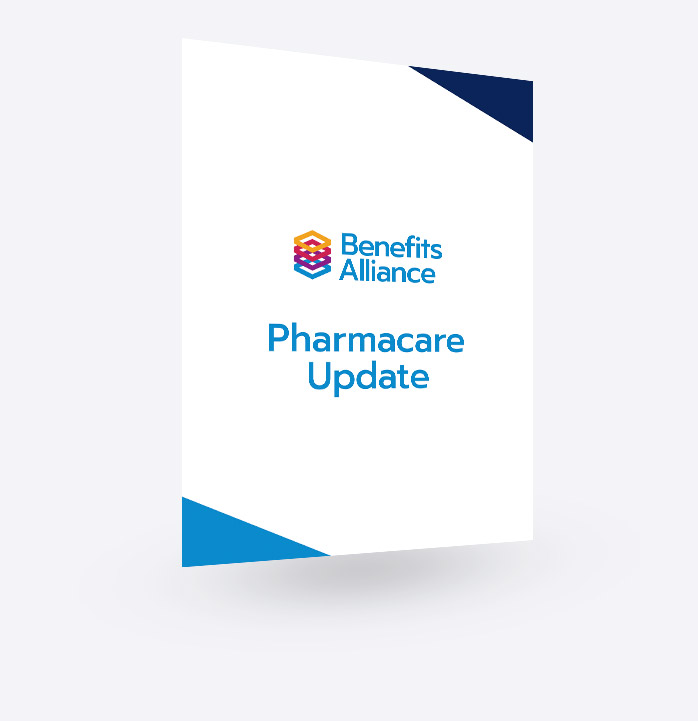
Pharmacare Update
December, 2022
Employers are altering the way they cover their employees as high-cost drugs are being allocated to private drug plans. Costs vary between private plan sponsors and patients based on province, resulting in an overall increase in drug expenditures. This lack of harmonization means that some life-saving or life-altering therapies may be available and covered in one Canadian jurisdiction, but unavailable in another. This inequitable treatment of Canadians is contrary to the concept of universal access to treatment.
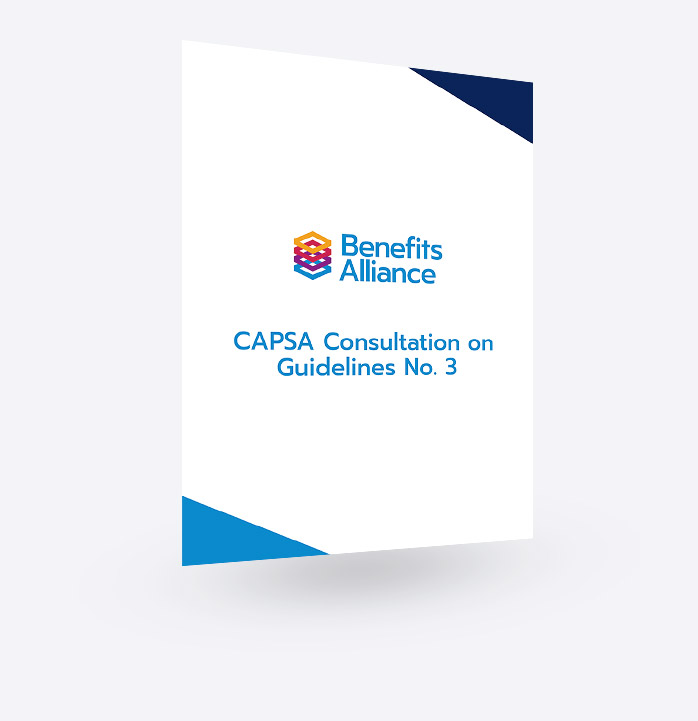
Submission to CAPSA Guidelines #3
August, 2022
We are highly selective in who qualifies to join BA, and prospective firms are peer nominated. Given the important role that Group Advisors play in the lives of all Canadians from coast to coast only the best Group Advisors who are committed to the highest levels of professionalism are invited into our membership.
We welcome the opportunity to provide comments on the CAPSA Guidelines No. 3 – Guidelines for Capital Accumulation Plans.
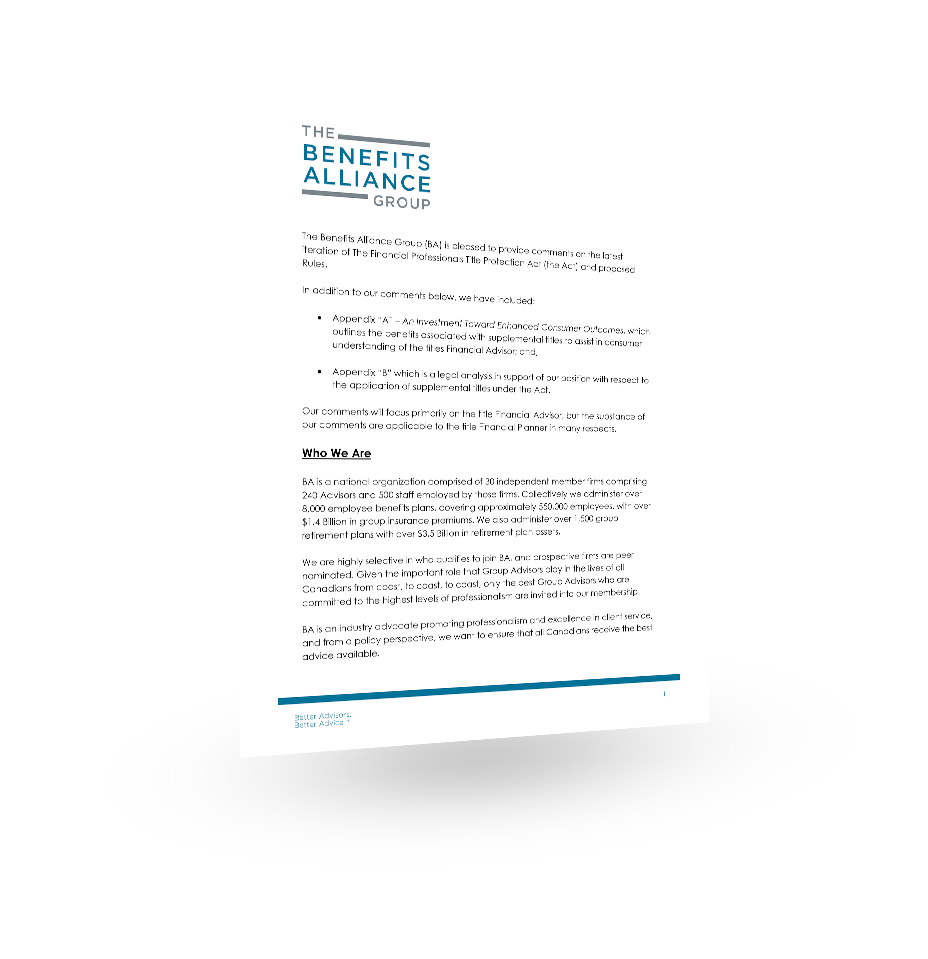
FSRA Submission
June, 2021
BA supports higher standards and levels of professionalism for anyone who wishes to use the title Financial Advisor. Individuals and companies are increasingly reliant on the varied services provided by professionals to meet both their immediate needs and changes to their needs that occur in one’s natural life cycle. Through addressing and adapting to the diversity of client needs, we have also seen the organic maturing of
the financial service industry. Market demands have resulted in some Advisors pursuing areas of specialization while other have remained generalists.
Advocacy Updates
How the CAP Guidelines Have Changed
David Bartucci joins Rahim Peera and Carolyne Eagan for a significant update in Group Retirement. The episode covers the significance of the updated CAPSA guidelines, which have been in
Insurance and business groups urge health minister to protect employer-paid virtual care
In a recent article on Virtual Care, The Star reached out to Benefits Alliance Chair, Graham Young to add his perspective as a Benefits Advisor. “This is no diferent
Limiting virtual-care employee benefits will burden Emergency Room Visits
Benefits Alliance President, Carolyne Eagan contributed to the Virtual Care conversation recently in the Toronto Sun. One in five Canadians do not have a family doctor or a nurse
Federal crackdown on user fees will make health care less accessible for millions, private clinics and
The Globe and Mail reached out to include Benefits Alliance President, Carolyne Eagan in a recent article on the impact of Virtual Care. About 10 million Canadians now have
National Pharmacare, an open letter from Benefits Alliance
National Pharmacare Open Letter August, 2023 Employer plan sponsors’ who we work with, along with many others, have chosen employer to setup, fund and manage a comprehensive benefits plan for…
We’ve got your back, plan sponsors
National dental benefits, unemployment insurance, pharmacare, a national strategy for drugs for rare diseases—these are among the policy discussions that affect private group insurance plans, yet plan sponsors rarely




